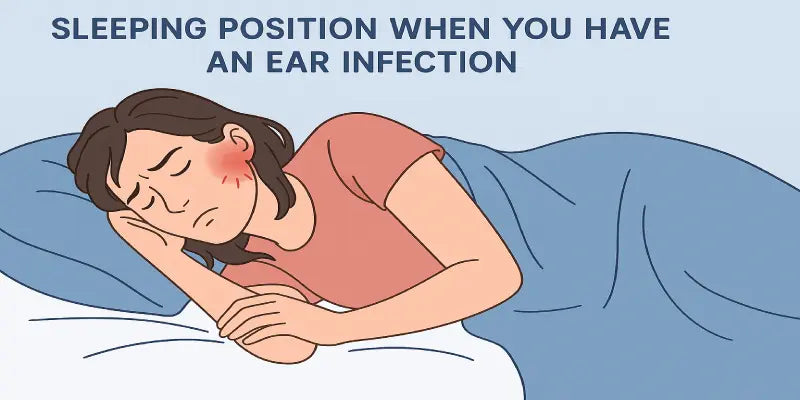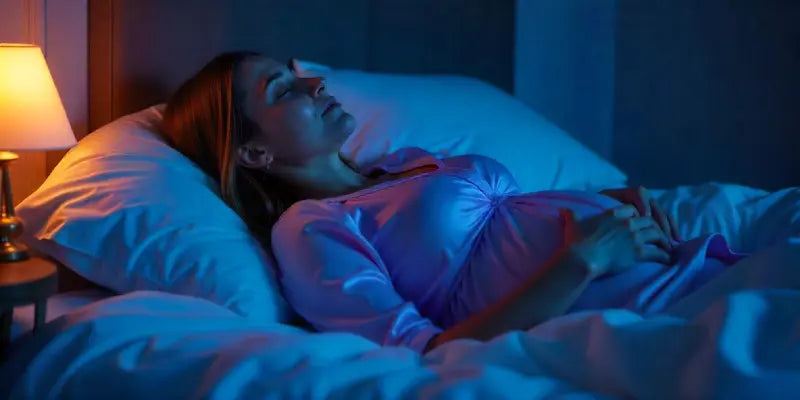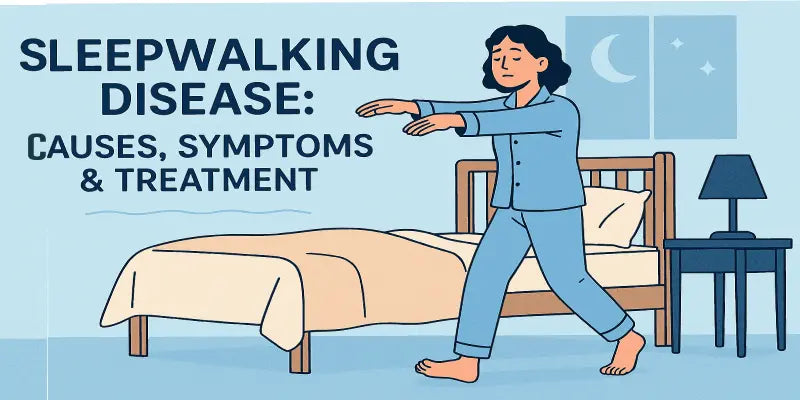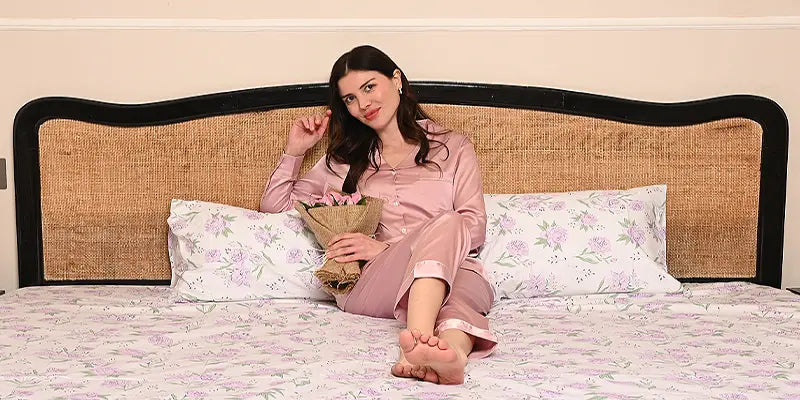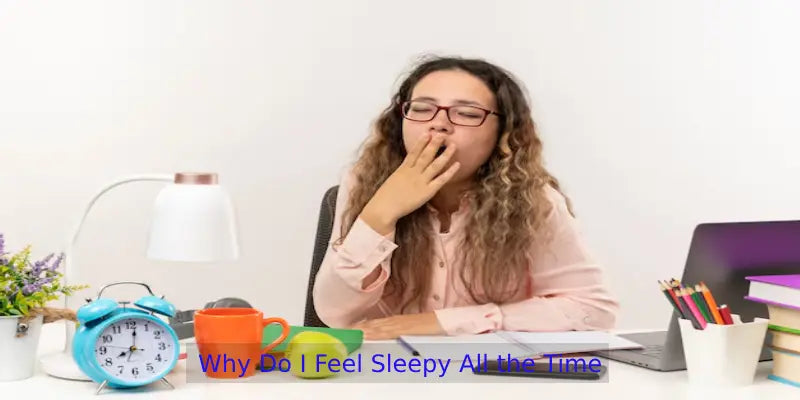
Why Do I Feel Sleepy All the Time?
It is quite awkward to yawn during important meetings or discussions, but it happens to most of us. We all struggle to keep our eyes open at some point in the day and wonder why we feel so tired after having slept well the night before. Dozing off at unsuitable times has a huge impact on daily life and productivity. But why do so many people have excessive daytime sleepiness? In this blog, we’ll find out the reason why you feel sleepy all the time and how to avoid excessive daytime sleepiness.
Reasons Behind Excessive Daytime Sleepiness
Here are the some reasons behind excessive daytime sleepiness:
1. Poor Sleep Quality
The main reason behind feeling sleepy and tired during the day, is that you haven’t slept well during the night. You may be scrolling through social media or watching a movie, or there was noise, or the sleep environment is not appropriate, or you may have sleep disorders like sleep apnea. The reasons vary, but not getting quality sleep at night will impact your productivity and mood during the day.
2. Stress and Anxiety
Anxiety is a common human feeling. Daily pressures, such as starting a new project or meeting a new person, can lead to feelings of stress and anxiety. Stress and anxiety can keep your thoughts running even when you're trying to relax, making it difficult to fall and remain asleep. This can result in feeling tired and sleepy throughout the day.
3. Poor Diet
Food provides most of the energy in your body. If you don't eat a well-balanced diet or you often miss meals, your body may not be getting enough nutrition. Consuming big meals close to bedtime or living a sedentary lifestyle could make it difficult to go to sleep and remain asleep, which can make you feel sleepy during the day.
4. Sleep Environment
The sleep environment plays an important role in how well you’ll sleep. Factors like noise, darkness, temperature, the comfort of your mattress, and your pillow all determine the quality of your sleep. It is very important to maintain a good sleep environment so that you can sleep well at night and not feel sleepy during the day.
5. Medical Conditions
Certain medical problems can lead to excessive daytime sleepiness. These include sleep problems such as narcolepsy and restless legs syndrome, as well as diseases such as anemia, thyroid disorders, and diabetes, which can all have an impact on energy levels. If you've been experiencing extreme daytime sleepiness for a long time, you should see a doctor.
6. Medications
If you take medication and are feeling unusually tired during the day, you should consult with your doctor to see if this is contributing to your symptoms. Some drugs, particularly those that impact the central nervous system, can cause sleepiness as a side effect.
7. Inactive Lifestyle
You are more likely to experience restless, poor-quality sleep if you live a sedentary lifestyle and don't exercise regularly. Snoring and small pauses in breathing can worsen the condition. Screen time and light from your devices may interfere with your sleep.
8. Dehydration
Dehydration can be one of the reasons you're tired and sleepy. When you're dehydrated, you may feel tired and have less energy. Though there is no specific recommendation for how much water and other fluids you should consume, the general opinion is eight 8-ounce glasses each day; however, this is not true for everyone.
Tips to Avoid Daytime Sleepiness
- Drink caffeine: Caffeine is a stimulant. You can drink a cup of coffee or anything that has caffeine in it if you are feeling sleepy during the day. But keep in mind that caffeine can keep you awake at night. Try to limit the amount, and also try to console it in the first half of the day so that it fades away in the evening.
- Eat a snack: Many people eat chocolate or something sweet if they feel sleepy. Sugary snacks can provide a temporary energy boost, but they are often followed by a crash that results in low blood sugar, brain fogginess, and tiredness. Try low-sugar, high-fiber snacks, as they can help you stay more energized.
- Take a power nap: If you are feeling extremely sleepy and it is hard to keep your eyes open, it is high time to take a power nap. Keep your naps short and schedule them for early in the day. It's advisable to take a nap 6 or 7 hours before bedtime.
- Get some sunlight: For those who spend the whole day inside their room or in an office cubicle, it is important to have some sunlight exposure during the day. Your body's internal clock is affected by light, especially sunlight. Sunlight exposure during the day helps with staying awake and getting a good night's sleep.
- Exercise: Most of us have a very hectic schedule, so it is difficult to get time to exercise daily, but regular physical activity can keep you energized and allow you to sleep easier at night. You can take a 15 min walk if you are feeling sleepy at the moment. It will give you the energy boost you need.
- Stay hydrated: It is important to stay hydrated the whole day. Drink water throughout the day, especially after you have done some physical activity. Dehydration can make you feel sleepy and tired.
- Practice sleep hygiene: Your day schedule and surroundings can have an impact on how well you sleep at night. To improve your sleep hygiene, stick to a consistent sleep schedule, clear your bedroom of distractions, make your sleep environment comfortable, and practice a soothing routine before going to bed.
Conclusion
So the next time you find yourself yawning and feeling sleepy during the day, think of what could be the reason behind it. By making simple changes to your lifestyle, such as sticking to a consistent sleep schedule, creating a soothing nighttime routine, and dealing with stress or worry, can generally improve sleep quality and reduce daytime sleepiness.
If you face excessive daytime sleepiness, even after following all the lifestyle changes, it is time to consult a doctor. If you have issues like neck pain or back pain and they are keeping you awake, you can consider using an orthopedic pillow for neck pain. It is ideal for back, side, and stomach sleepers experiencing neck pain, with a medium-firm yet soft feel and contour shape. It reduces pain and stiffness while also relieving shoulder and neck pain throughout the night.

